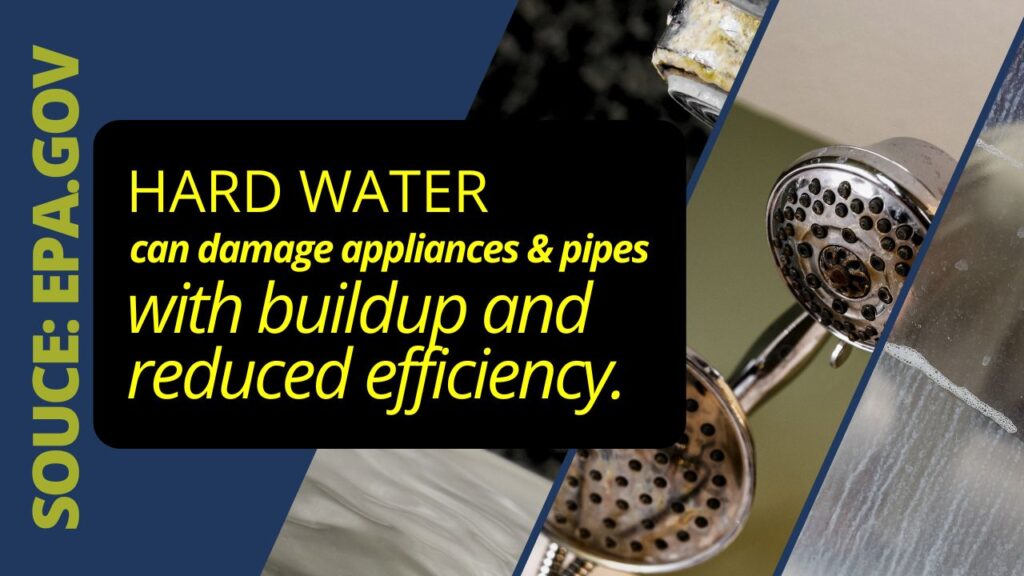Hard water is a common issue in many parts of Illinois, and it can take a toll on plumbing, appliances, and even your skin. Water softeners help protect your home by removing minerals like calcium and magnesium, but like any appliance, they don’t last forever. If your water softener is no longer keeping up, you might be due for a replacement.
In this guide, we’ll walk through signs your softener is on the decline, how Illinois water quality affects lifespan, and how an inspection can help you make the best decision.
What a Water Softener Does
Water softeners use a process called ion exchange to replace hard minerals in your water with sodium or potassium. The result is “soft” water that’s gentler on your pipes, your appliances, and your skin.
Here’s what soft water helps prevent:
- Buildup in plumbing and water heaters
- Spots on dishes and glassware
- Soap scum in showers and tubs
- Dry skin and hair irritation
- Reduced efficiency and lifespan of dishwashers and washing machines
Without a functioning softener, hard water can sneak back in and cause gradual damage throughout your home.

5 Signs Your Water Softener Might Need Replacement
Approximately 85% of U.S. homes have hard water, meaning a water softener is necessary. Some symptoms are subtle at first but become costly over time. Let’s check out some scenarios to watch for.
1. Soap Takes Longer to Rinse Off
Hard water makes it harder for soap to lather and rinse away. If you feel like you’re using more soap or spending longer in the shower, that’s a red flag.
2. Mineral Stains Keep Coming Back
White spots on glasses, buildup on faucets, or residue in your sink all point to mineral-heavy water. If you’re seeing these even after cleaning, your softener may be failing.
3. You’re Using More Salt Than Usual
Salt levels that drop faster than expected or no improvement after refilling can mean the resin beads or brine system are no longer working properly.
4. Plumbing or Appliance Issues Start Appearing
Hard water can clog pipes and reduce the efficiency of your water heater. If you’ve had recent plumbing issues, the water quality could be part of the problem.
5. The System Is 10 to 15 Years Old
Most softeners last around a decade. Past that point, they tend to lose efficiency and may stop removing minerals consistently, even if they appear to be running.
Can You Repair Instead of Replace?
If your softener is less than five years old, a repair might be worth it. But once systems get older or start needing frequent service, it’s typically smarter to invest in a new unit.
Here’s when replacement makes more sense:
- Recurring salt usage problems
- Leaking or corroded tanks
- Control valve or resin tank failure
- The softener can’t keep up with your household water usage
New models are often more efficient, require less salt, and offer features like water usage tracking and automatic alerts.

Local Water Conditions & System Wear
The quality of your local water impacts how long your softener lasts. Illinois groundwater often has high levels of iron, calcium, and other minerals.
Homes with private wells may also experience fluctuating pH levels, sediment, or bacteria, all of which place extra strain on a water softener.
If your system isn’t designed for your specific water conditions, it will wear out faster. That’s why a professional opinion is so important before replacement.
When to Get a Home Inspection
A home inspection can help determine if your softener is the root of the problem or if there are larger plumbing issues to consider. During an inspection, professionals can:
- Test water hardness and iron levels
- Check for scale buildup in plumbing
- Evaluate the condition of your current softener
- Recommend system upgrades based on water usage and quality
This is especially useful if you’ve moved into a new home, are preparing to sell, or haven’t had your system checked in years.
Conclusion
Water softeners are essential for managing hard water in Illinois homes. If you’re seeing signs like stubborn soap, mineral buildup, or a sudden jump in salt use, don’t ignore them.
Replacement for your water softener is best done before it fails completely. Need help figuring out what’s next? A home inspection can give you clarity on your current system and help you plan your upgrade with confidence.

